Frontier Markets Weekly, April 28th 2024
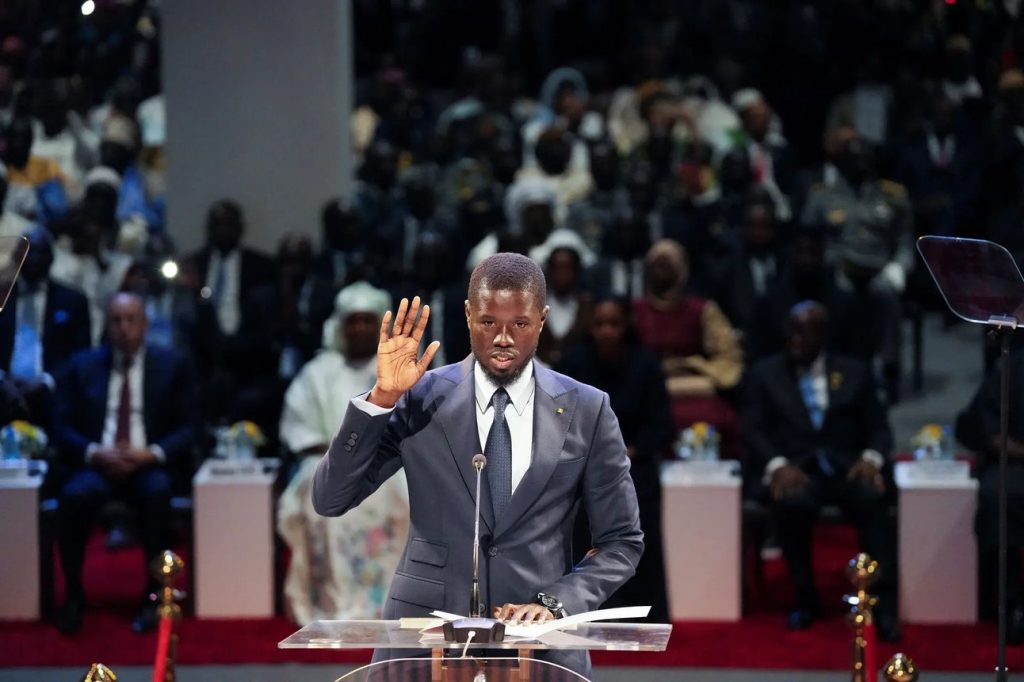
Dear Reader,
Frontier Markets News is on a mission to bring unbiased insight and intelligence about key developments in small emerging markets to a global audience.
If you are enjoying this newsletter please consider upgrading to a paid subscription today. As well as supporting our continued development of sharp, markets-focused coverage and new informational products, paid subscribers will gain exclusive access to our future quarterly EM/FM reports that will aggregate insights from 25 key EM-focused institutions.
Sent this by a friend? Sign up here to receive FMN in your inbox every weekend.
By Ken Stibler, Noah Berman and Nojan Rostami. Executive editor: Dan Keeler
Africa
Floods inundate East Africa
A deluge of floods struck East Africa this week after torrential rains pounded Burundi, Kenya and Tanzania, displacing more than 100,000 people in each country, according to the Guardian. The storms killed more than two hundred people and injured dozens more, the New York Times reports.
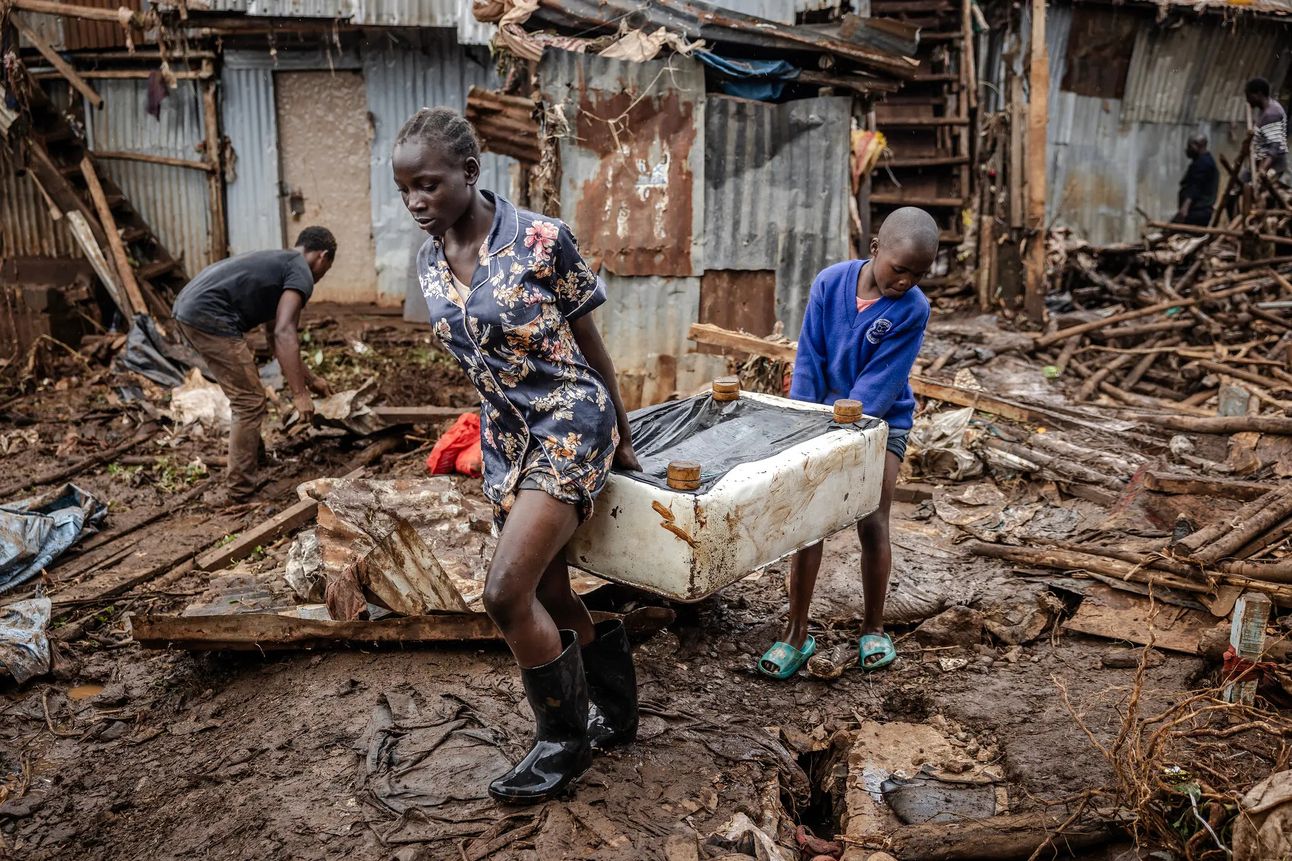
The devastation wrought by the floods underscores the severity of ongoing infrastructure challenges in East Africa, where many roads and drainage systems are in poor condition.
The heavy flooding is likely to have a significant impact on Kenya’s economy, which the IMF forecasted this week would this year surpass Angola’s as sub-Saharan Africa’s fourth-largest.
FMN Exclusive: The green transition ‘might not be Africa’s panacea’
African nations counting on a windfall from mining minerals essential for the global clean energy transition might be disappointed, new research has found. In an upcoming executive brief of his Bellagio residency report, Bright Simons, a vice president of think tank IMANI Africa, says the conventional logic underpinning optimism about Africa’s mineral resources is based on flawed assumptions.
Simons argues that in recent years, international organizations have endorsed a consensus: Africa has abundant natural resources that will be critical to the clean energy transition, so the continent will become wealthier as that transition fuels demand for critical minerals. Last year, for example, UN Secretary General António Guterres said progress in renewable energy could create “the African miracle,” and that Africa could become a “renewable energy superpower.”
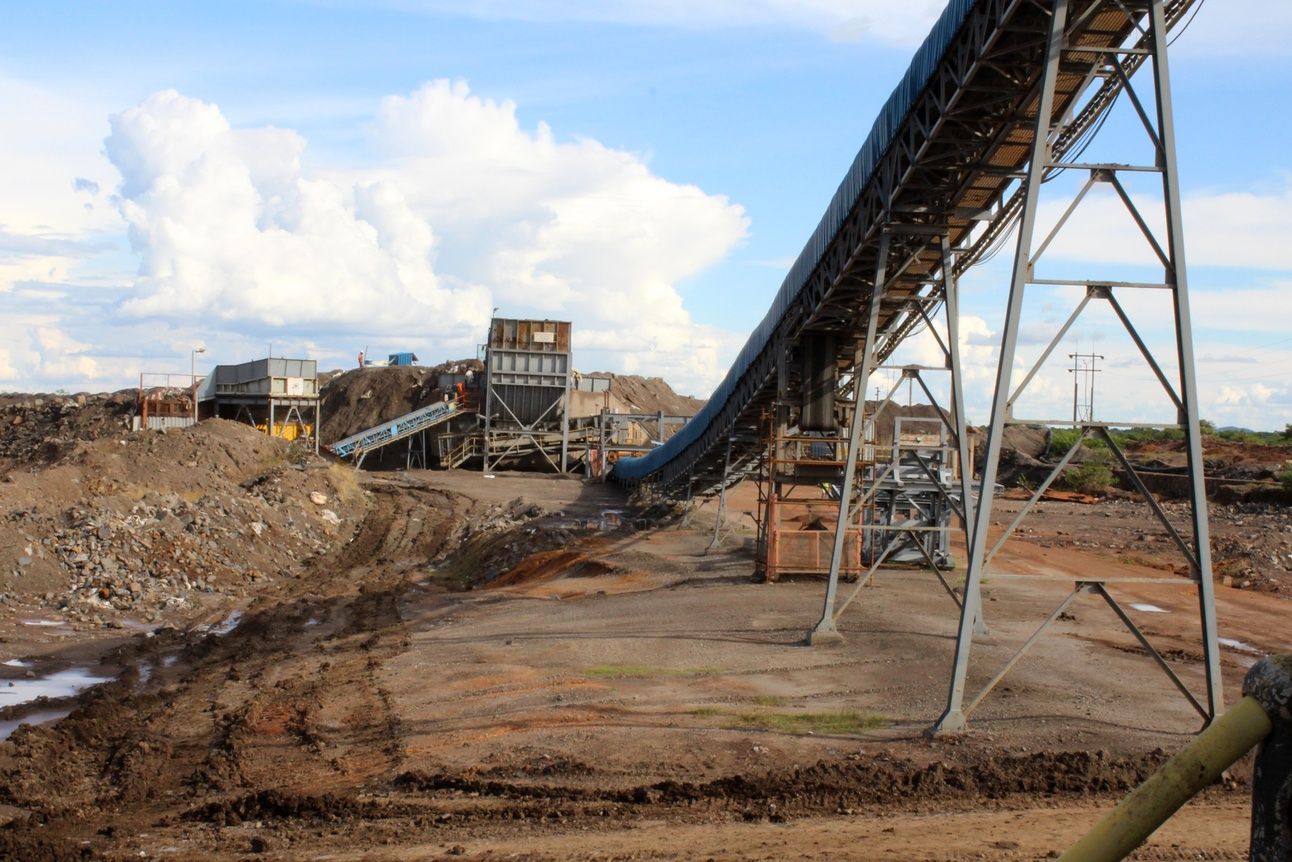
But the assertions behind this consensus are questionable, Simons says. Indeed, “Africa has less than 4.5% of the minerals essential to the green transition, with few prospects for increasing its reserves of production,” he told FMN. Countries around the world are focusing efforts on recycling, which is reducing demand for natural resources, he adds.
Even those African countries that are major mineral exporters might not benefit, he says, because “they lack the right mix of industrial minerals most connected to the transition such as lithium, nickel and rare earth metals.”
Senegal’s new president to recast relationship with EU
Newly inaugurated Senegalese President Bassirou Diomaye Faye said on Monday that he would pursue a “rethought” relationship with the EU, Barron’s reports.
Speaking at a press conference with the President of the European Council, Faye said a “renovated partnership” would improve cooperation between Senegal and the bloc.

During his election campaign, Faye promised to bolster domestic industries. Even before taking office early this month, he announced he would renegotiate oil, gas and mining contracts with major US and European firms in a bid to raise government revenue. He initiated an audit of those industries as one of his first steps in office.
Next he will turn to fisheries, where there is significant cooperation between Senegal and Europe. EU firms have been accused of depleting marine stocks while paying wages below international standards. The fisheries sector contributes about 3% of Senegal’s GDP, according to the US Department of Agriculture.
Asia
Malaysia courts venture-capital firms
Malaysia rolled out visa programs this week that are aimed at attracting venture capital and startup firms to set up shop in the country.
The “Unicorn Golden Pass” targets startups, with incentives including exemption from work visa fees for senior management, subsidized rents, and friendly tax rates on corporate profits, Nikkei reports. An additional program, the “VC Golden Pass” will offer visa fee exemptions and expedited license approvals for venture capital firms with more than $100 million under management.
At a conference on Monday, Malaysia’s Prime Minister Anwar Ibrahim said a focus on tech investment positions Malaysia “as an axis for leaders in semiconductors, clean energy, agritech and Islamic fintech.”
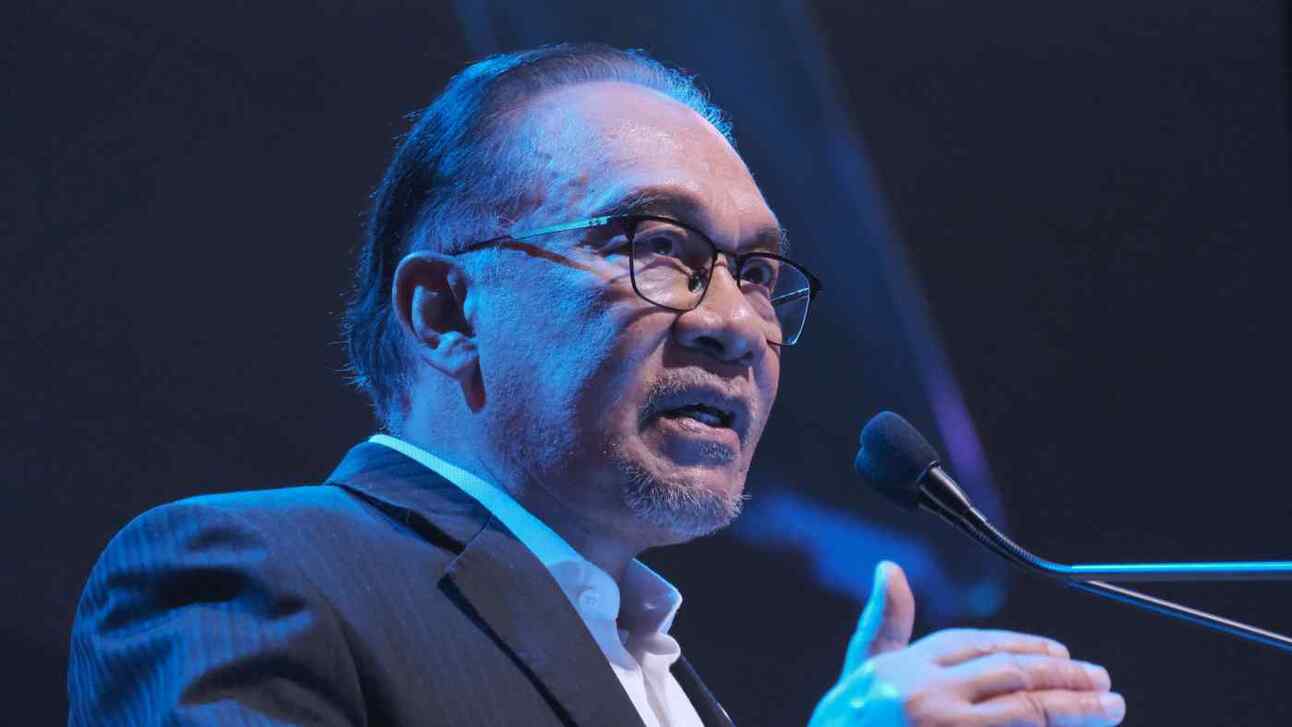
Malaysia is the latest country in Southeast Asia to adopt a so-called golden visa program. Indonesia introduced a visa-by-investment scheme last August (with OpenAI’s Sam Altman reportedly the first recipient) and Thailand began offering one in 2022.
Vietnam readies upgrades to stock trading system
Vietnam will launch a new stock trading system next Thursday that is expected to include faster transaction settlement.
If the initiative succeeds in attracting more foreign investors to the Southeast Asian country’s stock exchange, Vietnam could become reclassified as an emerging market. Major indices including MSCI and FTSE currently consider Vietnam a frontier market. Vietnamese officials said FTSE could announce that it will upgrade Vietnam to emerging status by September, Reuters reports, with the official change to come next year.
Because of its frontier market classification, Vietnam is not eligible for investment by many funds. Becoming an emerging market could bring inflows of up to $25 billion—or 6% of the country’s GDP—by 2030, World Bank officials said.
Did someone forward this to you? Subscribe at FrontierMarkets.co
Middle East
Iran ramps up diplomatic efforts
Iran this week received a high-level delegation from North Korea, raising concerns in the US and South Korea that deepening cooperation on arms sales between Tehran and Pyongyang could further fuel conflict in the Middle East, Bloomberg reports.
Also this week, Iranian President Ebrahim Raisi visited Pakistan, reportedly seeking to mend ties after tit-for-tat strikes in their respective Balochistan regions earlier this year threatened to rupture the relationship. The two sides said they would increase bilateral trade to $10 billion a year over the next five years, and Pakistan agreed to cooperate on the long-delayed Iran-Pakistan gas pipeline, drawing yet another warning from the US that “anyone considering business deals with Iran” should be “aware of the potential risk of sanctions.”
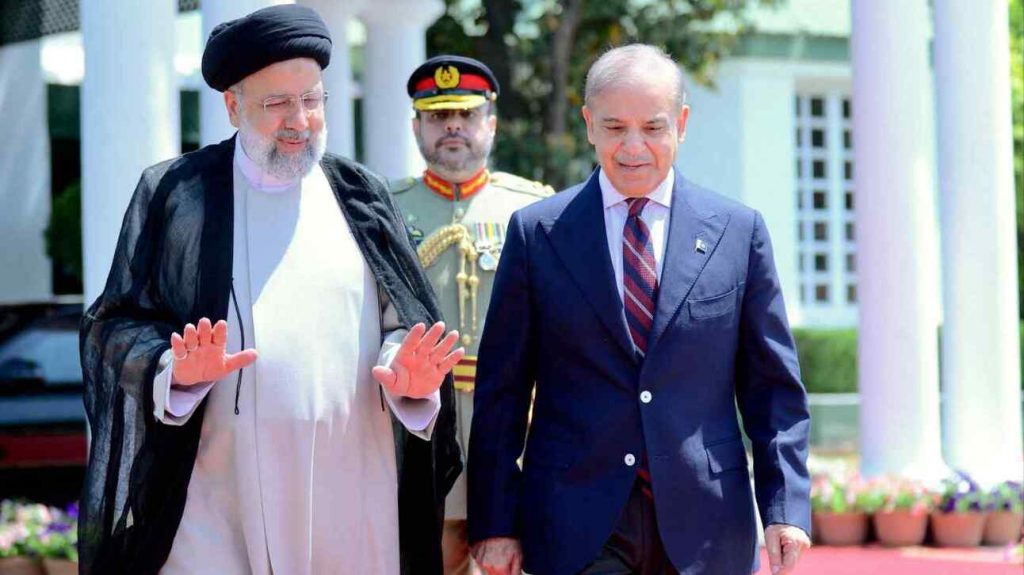
Raisi traveled to Sri Lanka after leaving Pakistan. During the visit, he celebrated the opening of a 120MW hydropower and irrigation project that was built with Iranian assistance. The $514 million project will provide about about 2% of Sri Lanka’s annual electricity demand—and irrigate some 15,000 acres of land, AP reports.
Oman and UAE seal flurry of deals
Oman’s Prime Minister Sultan Haitham bin Tariq was in the UAE this week as the two countries sealed some $35 billion in investment agreements on industrial, energy, and infrastructure project development. Among the commitments included in the agreement is the creation of a joint 660 million dirham ($180 million) technology-focused fund to invest in local enterprises and an 11 billion dirham rail link between the two countries.
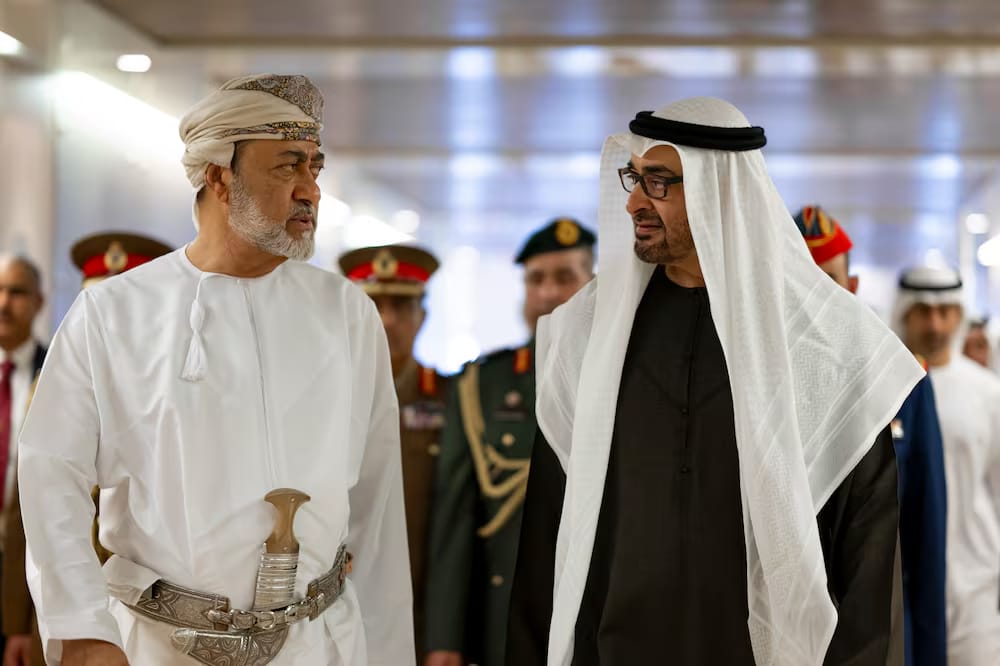
A consortium led by Germany’s Siemens and local partner Hassan Allam Construction this week announced it had won a contract for signaling and power supply for the first stage of the link between Adu Dhabi and the Omani port city of Sohar. The agreement was one of several signed this week for the construction of the 303 kilometer rail line, Times of Oman reports.
Also this week, Oman concluded an LNG supply deal with France’sTotalEnergies, Reuters reports. The deal includes an agreement to supply 800,000 metric tons per year of LNG over 10 years, and a final investment decision by TotalEnergies to proceed with a new offshore project and LNG plant at the Sohar port.
Iraq and Turkey to elevate security and economic ties
Iraq and Turkey this week formally agreed to deepen military cooperation against Kurdish militants and to enhance trade and investment ties, Reuters reports.
At a joint press conference with Turkish President Tayyip Erdogan in Baghdad, Iraqi Prime Minister Mohamed Shia al-Sudani said the two neighbors had signed a “strategic security pact, as well as another agreement on water sharing.” Erdogan emphasized that the security pact included formal recognition by Iraq of the Kurdish PKK group as a terrorist organization—a long-sought security goal as Turkey is set to launch an offensive against the group in northern Iraq sometime soon.
Also agreed to was a quadrilateral, $20 billion transportation infrastructure deal involving Iraq, Turkey, Qatar and UAE on the Iraq Development Road project, a new trade corridor that would connect Europe to the Gulf via road and rail links between Turkey and Iraq’s al-Faw Grand Port.
Europe
Baltic countries help repatriate Ukrainian men among recruitment push
Poland and Lithuania have agreed to help Kyiv repatriate Ukrainian men of fighting age who have left the country to avoid being sent to the battlefield, the FT reports. Ukraine needs to recruit hundreds of thousands of men but the number of volunteers has dwindled, prompting the government to adopt a new law expanding mobilization, including for those abroad.
Poland, the main haven for people escaping the conflict, is estimated to host around 200,000 Ukrainian men. Ukraine has recently suspended consular services for men of military age living abroad, making it harder for them to extend their stay.
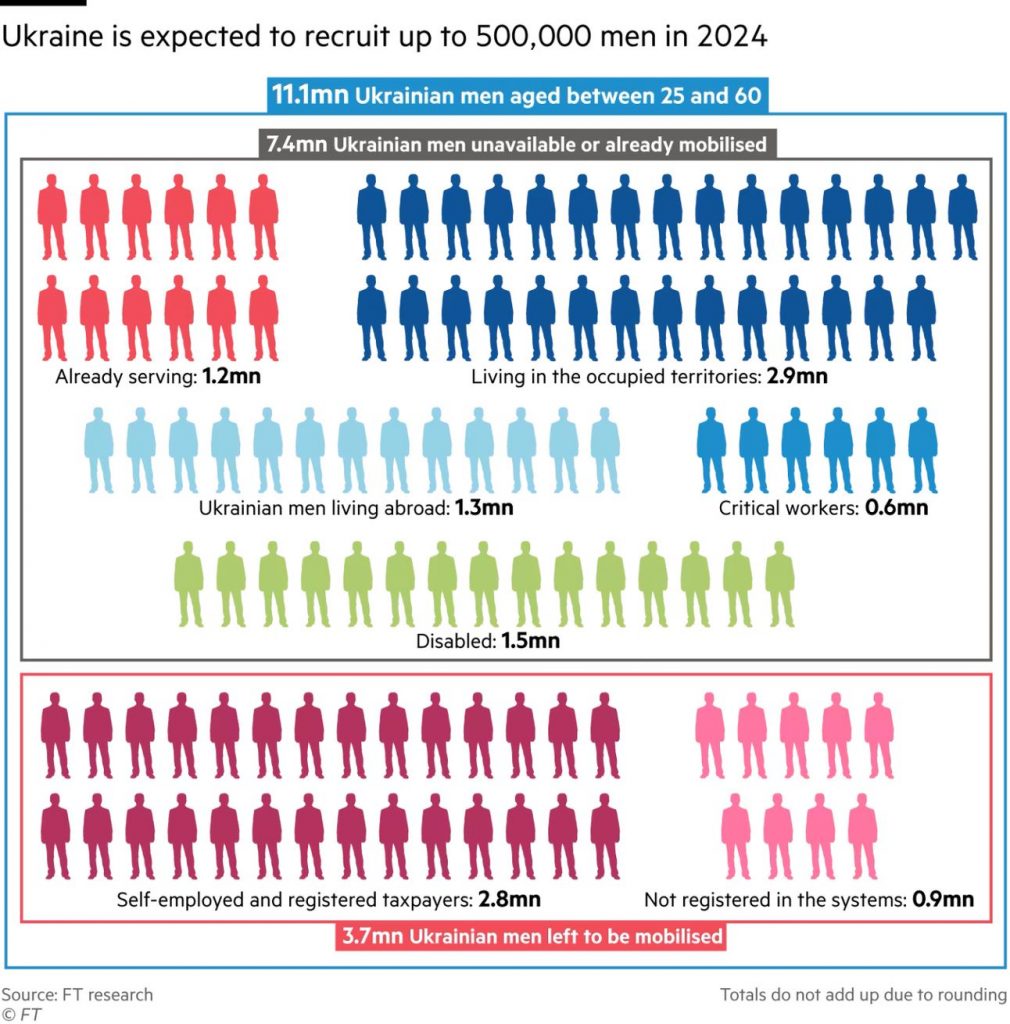
The moves have triggered a backlash among Ukrainians abroad, with many accusing the government of infringing upon constitutional and human rights. Poland’s defense minister expressed solidarity with Ukrainians fighting on the front and their grievances against compatriots who left the country, but suggested programs could be established in Poland to provide professional training for those fearing being sent to the front unprepared.
Latin America
Costa Rica considers a return to oil drilling
Costa Rica, often hailed as a model for environmental preservation, is facing a shift in priorities under the leadership of President Rodrigo Chaves. The center-right government is considering reversing a decree that ordered an oil and gas exploration moratorium until 2050, citing the potential economic benefits of the multibillion-dollar industry, the Guardian reports.
Chaves’ move has raised concerns among environmentalists and NGOs amid a broader departure from green policies across the Andean region.
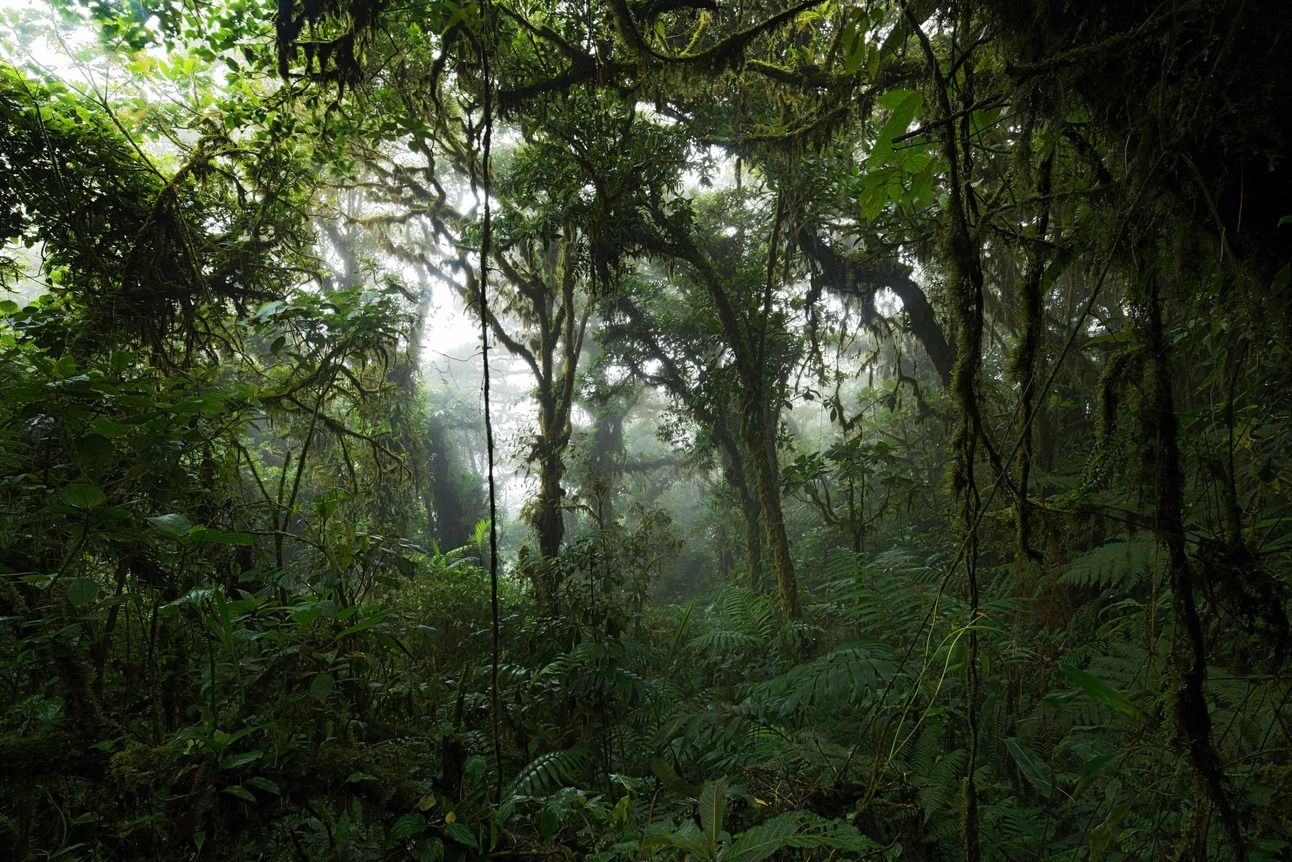
Environment minister Franz Tattenbach said Costa Rica needed to balance its environmental reputation with the need to generate wealth. Highlighting continuing challenges, such as disorganized urban development, lack of wastewater management, and pollution from agriculture and industry, Tattenbach said the move could help attract funding to further adapt to a greener economic model.
Argentine protests add to headwinds for Milei’s reform program
Hundreds of thousands of students, professors and trade union members took to the streets of a number of Argentine cities this week to demand increased funding for public universities, which are struggling with recent budget cuts, AP reports. The scale of the protests, which even drew support from conservative politicians and private university administrators, highlighted the growing discontent with President Javier Milei’s harsh austerity measures.
While the president dismissed the university budget issue as mere politics, the government has backtracked on some spending cuts, sending funds to cover maintenance costs and keep medical centers operating.

Milei’s government has tried to assuage concerns with projections of a faster-than-expected slowdown in inflation and a milder economic contraction, but many economists still see improved conditions for average Argentines as far off. And as protests grow, the political pressure on Milei to scale back his reform program—which still has not achieved a single legislative win—is likely to mount.
Ecuador’s government strengthened by crime-powers referendum and IMF deal
Voters in Ecuador this week overwhelmingly approved a move by President Daniel Noboa to strengthen his crackdown on drug gangs, the WSJ reports. Measures in the referendum, which include allowing the military to support police in tackling organized crime, extraditing criminals, and extending sentences for certain offenses, are expected to bolster Noboa’s position as he seeks to address an unprecedented crime wave that has gripped the nation in recent years.
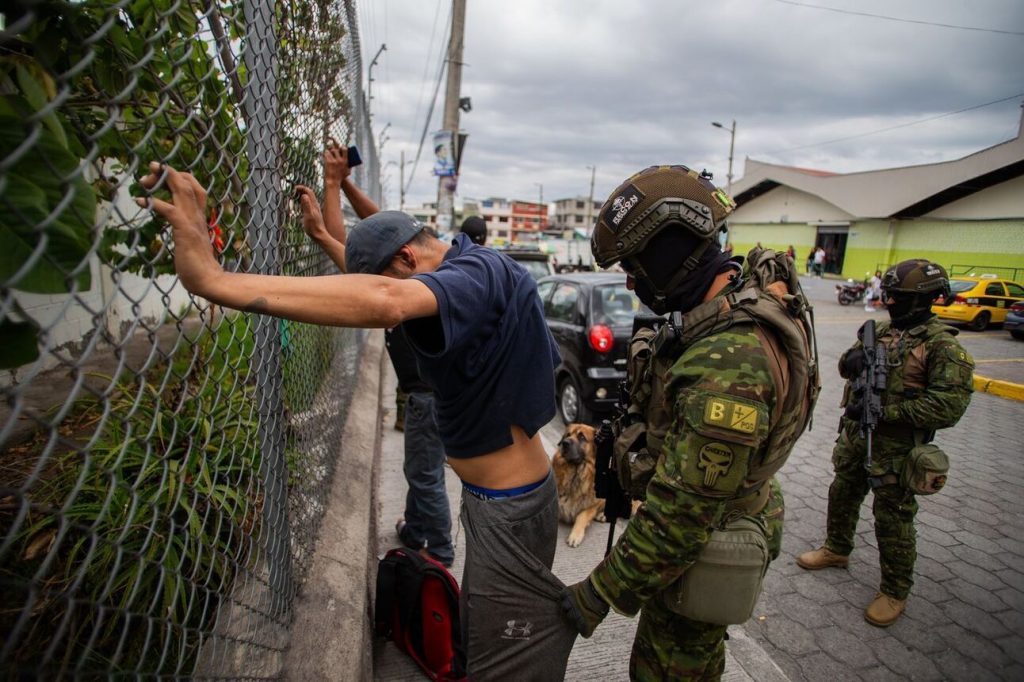
Additionally, the IMF agreed to a $4 billion funding deal aiming to support the government’s efforts to improve living standards, protect the most vulnerable, and promote sustainable growth. However, the rejection of two economic reforms in the referendum—one related to international arbitration of investment disputes and another concerning fixed-term and hourly employment contracts—could raise concerns among investors.
Noboa’s successes will likely enhance his prospects in next year’s presidential election, as he continues to serve out the term of his predecessor, Guillermo Lasso. However the road ahead is still difficult with analysts concerned about the resilience of Ecuador’s well-organized and politically embedded criminal groups and the risks that Quito strays from the IMF deals required policies.
Global
Pressure rises in against IMF EM debt policy
World financial leaders are pushing to overhaul the common frameworkinitiative, a system for sovereign debt restructurings that has left poor countries locked out of capital markets, Bloomberg reports. The initiative, hatched during the pandemic to help poor countries rework their debt, has left countries such as Zambia, Ghana, and Ethiopia struggling to resolve their debt crises amid protracted negotiations with an array of creditors.
- Interest-to-revenue ratios continue to rise for most frontier markets (Fitch Ratings)
The emergence of China as a key player in the debt restructuring landscape has upended traditional negotiations, with Beijing and Wall Street now holding more than half of the defaulted debt and having the power to reject deals. The common framework sought to ensure that each creditor group shared the burden evenly, but a lack of transparency and separate negotiations have made the process complicated and opaque.
To address these issues, the IMF announced measures that could mark a turning point in the campaign to incorporate China into the system for restructuring debt owed by poor countries. One of the main changes would allow the IMF to lend to countries even if negotiations with creditors are ongoing, as long as there is progress toward a deal.
What we’re reading
Zambia seeks power imports for key mining sector (Reuters)
Zambian inflation hits 26-month high as currency rout returns (Bloomberg)
Zimbabwe’s ZiG wipes out 330% stocks rally (Bloomberg)
Portugal’s Galp says Namibia oil field could contain 10 billion barrels of oil (Reuters)
EU, Kenya trade deal gets Parliament nod (Business Daily Africa)
UK’s Rishi Sunak gets Rwanda bill through parliament (FT)
Turkish warship docks in Somalia (Garowe Online)
Turkey to drill oil off Somali coast starting in 2025 (The East African)
US and Russia are vying to build Ghana’s nuclear energy plant (Semafor)
Abrupt plunge takes shine off Nigeria’s naira (Bloomberg)
US to pull troops from Chad and Niger (AP)
Burkina Faso army ‘massacres 223 villagers’ (Human Rights Watch)
Egypt to halt all LNG exports from May to meet domestic needs (S&P Global)
Large number of Russian troops and weapons arrive in Libya (Military Africa)
Tunisia, Algeria and Libya aim to create new regional coalition (Barron’s)
Algeria signs $3.5b deal with Qatari firm to develop world’s largest dairy farm (Al Monitor)
French banks’ exit from Africa will boost local banks (Fitch Ratings)
AfDB president seeks end to loans linked to Africa’s natural resources (Semafor)
Extreme heat sears Bangladesh (Daily Star)
Myanmar’s junta recaptures town that was a significant gain for rebels (NY Times)
Thailand to replace military-appointed Senate and reduce its powers (Reuters)
Rising spot LNG prices starting to bite some Asian buyers (Reuters)
Indonesia’s SWF eyes green energy transition with $1b investment plan (FT)
UAE firm pledges $13 billion for 20 years of South Sudan oil (Bloomberg)
Security concerns weigh on private sentiments in Lebanon (FrontierView)
Iran homing in on Africa with trade promises—and chaos (Radio Free Europe)
Bahrain’s Investcorp, China’s CIC launch $1B Sino-Gulf investment platform (Al Monitor)
EU relaxes visa rules for Saudi Arabia, Oman, Bahrain (Arab News)
First Iran group in nine years heads to Saudi Arabia for umrah pilgrimage (Reuters)
Turning a vault into a bomb shelter: How Citigroup has kept its bank running inside Ukraine (WSJ)
Moldova faces new challenge from restive Gagauzia region (Radio Free Europe)
North Macedonia to elect president after campaign focused on EU membership (AP)
EU companies grapple with expiry of Russia sanctions carve-out (FT)
Paraguay surprises by not cutting rate, citing Fed and oil risks (Bloomberg)
Ecuador falls into energy rationing again (FrontierView)
Haitian Prime Minister Ariel Henry resigns (WSJ)
Colombia’s Petro gets victory as senate approves pension reform (Bloomberg)
Ecopetrol to invest $760 million to increase gas production (Oil and Gas Journal)
Colombia becomes first country to restrict US beef due to bird flu in dairy cows (Reuters)
In default on $154b of debt, Venezuela is ready to talk (Bloomberg)
Venezuela to accelerate cryptocurrency shift as oil sanctions return (Reuters)
Bolivia’s dollar crisis pits Evo Morales against Luis Arce as election nears (Bloomberg)
Why the US and China suddenly care about a port in southern Chile (Americas Quarterly)
Why it’s LatAm’s time to shine in emerging market debt (CityWire)
Latin American cocoa farmers rush to expand planting as prices spike (FT)
We are committed to providing FMN readers with a free weekly digest of politically unbiased, succinct and clear news and information from frontier and small emerging markets.
Please consider becoming a paid supporter to help cover some of our costs and support our continued development of sharp markets-focused coverage and new informational products. Paid subscribers will also gain exclusive access to our quarterly EM/FM report that aggregates EM insights from 25 major banks, international institutions and consultancies.




